It was on June 26th this year that Nicolas Sarkozy made his entry into an ongoing Brazilian judicial investigation. It was a discreet entry, with Antonio Palocci, the former Brazilian finance minister and one-time right-hand man of ex-president Luiz Inácio Lula da Silva, delivering an enigmatic phrase while being questioned by Brazilian judges. But it dropped like a bombshell.
Palocci, who in 2017 was given a 12 years jail sentence for corruption and who is now “cooperating” fully with the judicial authorities by passing on hundreds of items of material evidence, told the judges of a meeting held at France's request between Sarkozy and Lula to discuss arms deals on the evening of September 6th, 2009, in Brasilia, the night before the festivities celebrating Brazil's annual independence day on September 7th. This was an “inappropriate initiative”, claims the former minister, which led to “all types of bribes”.

Enlargement : Illustration 1
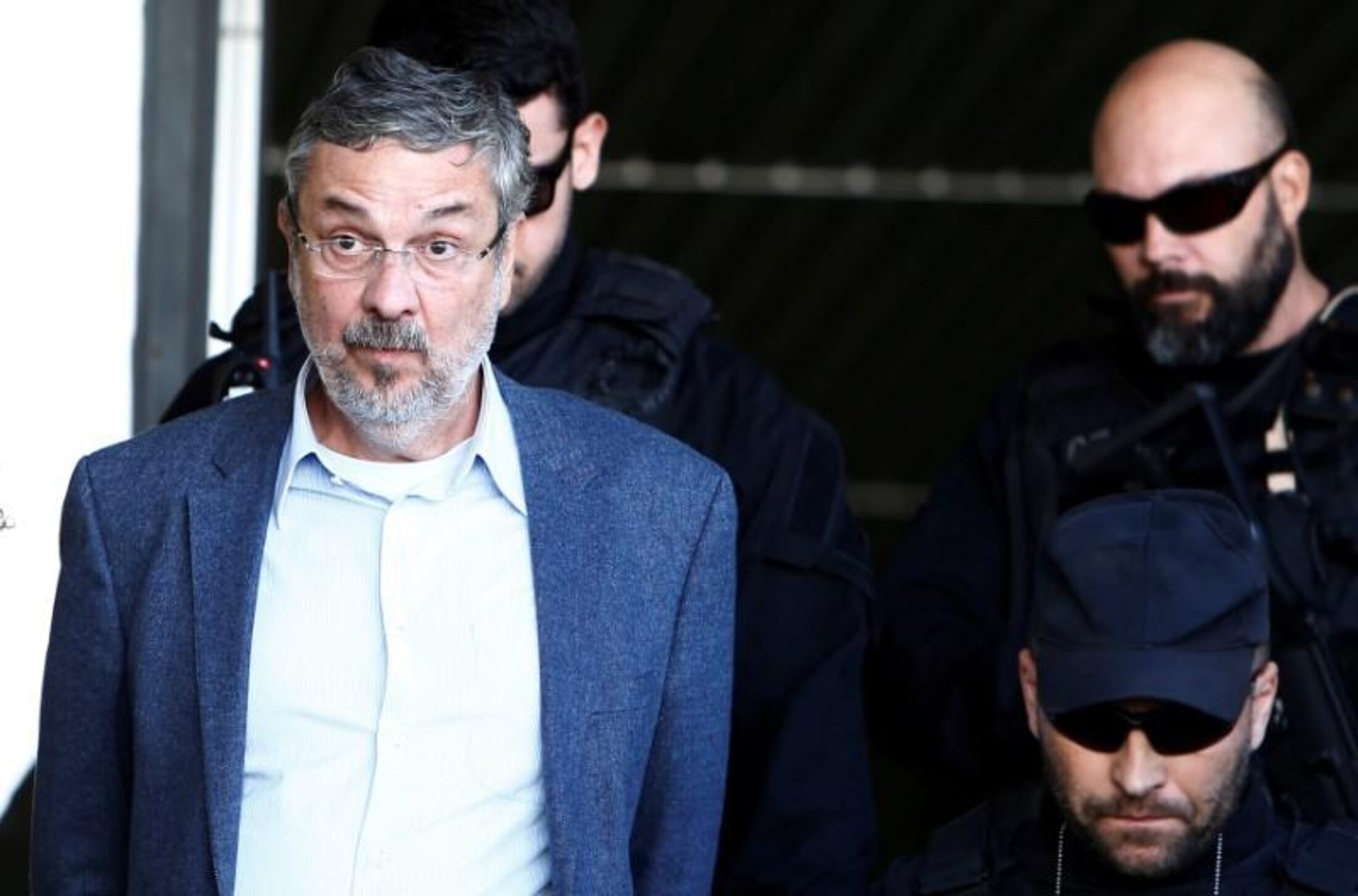
This close ally of Lula is due to be tried again on appeal on October 24th, just four days before the second round of the Brazilian presidential election. The timing of this trial has been strongly criticised on the Left in Brazil at a time when the far-right candidate Jair Bolsonaro remains the strong favourite to win.
Though it was not Antonio Palocci who sparked off the scandal that led to Lula's downfall, it was his involvement in it that dealt the death blow. As co-founder of the country's workers party the Partido dos Trabalhadores or PT, a government minister from 2003 to 2006, an MP and then chief of staff to President Dilma Rousseff, Antonio Palocci was the last person Lula expected to see denouncing him in court. Palocci was charged and remanded in custody in September 2016 as part of the so-called 'Car Wash' corruption investigation in Brazil and convicted in June 2017. The court's judgement, which runs to 300 pages, demonstrates his key role in the dealings between the PT and the cartel of building companies led by the Odebrecht group – the second largest private company in the country – to share out building contracts awarded by state oil company Petrobras.
Palocci, who was dubbed 'The Italian' in notes written by staff at Odebrecht, oversaw the payments to Lula's PT party - in return for favourable decisions by the state – ahead of elections. According to a spreadsheet found by the judges, 46 million euros were funnelled through him by Odebrecht, 31 million euros of which have been traced between 2008 and 2014.
Whether it involved the construction of oil refineries, funding prospecting for oil or other large-scale works, a percentage of between 1% and 3% was added to the deals which then went to political parties, elected representatives and senior company executives. One of these large contracts turns out to have been the one to build a naval base at Itaguaí in Brazil, to house four French Scorpène submarines and ultimately a nuclear-powered attack submarine.
This huge Franco-Brazilian deal, called PROSUB (for Programa de Desenvolvimento de Submarinos) and signed in 2009 by the French naval defence firm Naval Group (formerly DCNS) and Odebrecht, was one of the issues discussed during President Sarkozy's trip to Brazil, alongside a deal for 50 EADS (now Airbus) helicopters.
In 2017 France's national financial prosecutions unit (PNF) opened a preliminary investigation into the PROSUB deal after the Brazilian investigation had calculated the level of hidden payments on this deal alone at 70 million euros, of which 12 million were destined for Lula's party, the PT. The Brazilian authorities passed on all the transcripts of witnesses that were of interest to the PNF, on the condition that the French authorities undertook not to start proceedings against anyone who had agreed to sign a “judicial cooperation” deal.
For its part Naval Group, already under suspicion in relation to the sale of Scorpène submarines to Malaysia when the French company was known as DCNS, has told Mediapart that “all the contracts concluded by DCNS in the context of the PROSUB programme conformed perfectly with French and Brazilian law”.

Enlargement : Illustration 2
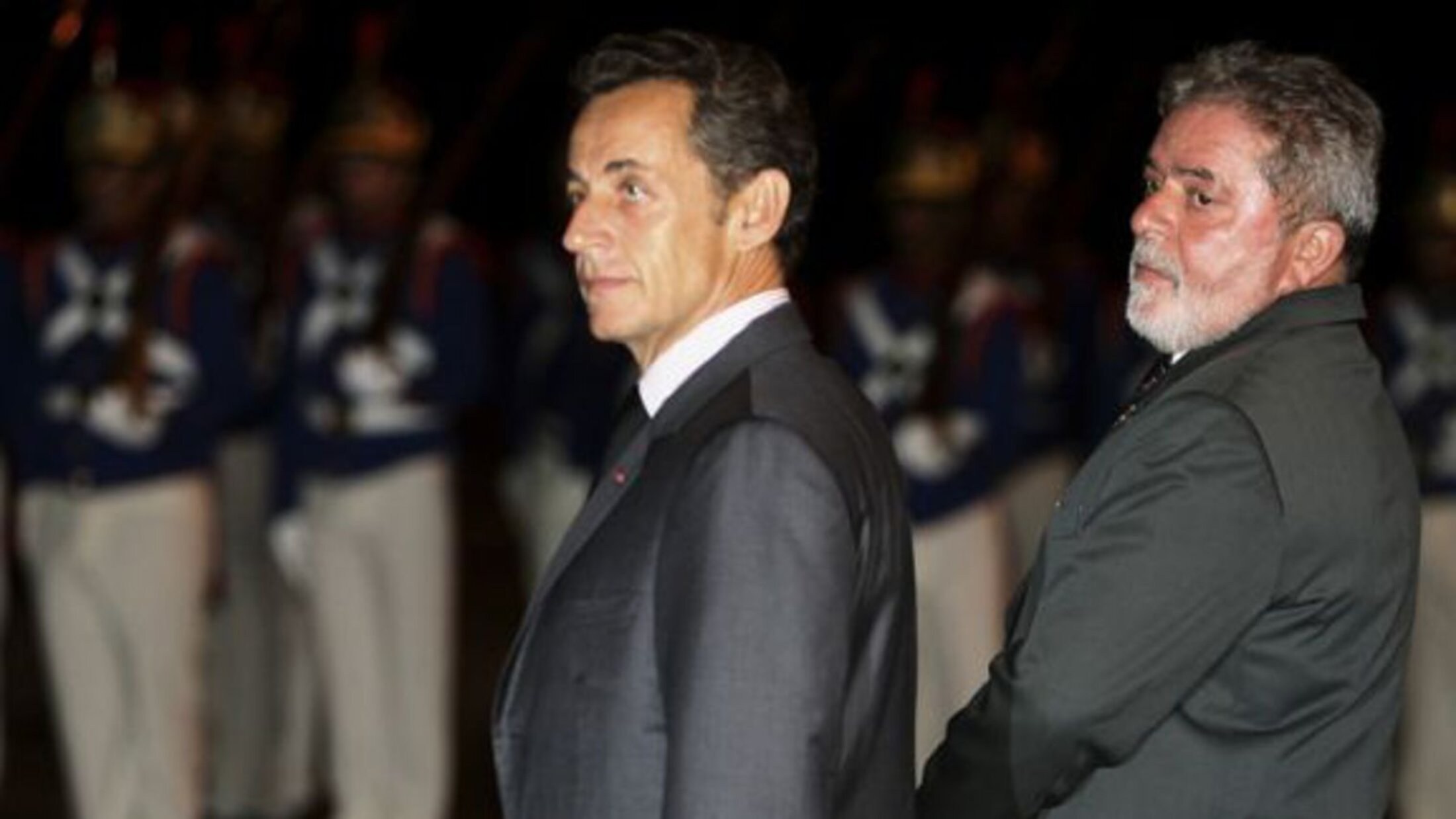
Antonio Palocci decided to speak in September 2017. He gave details of links between Lula and Odebrecht and the offer made by the head of the company, Emilio Odebrecht, to Lula in 2010 to assign the equivalent of 71 million euros to help the latter's future political activity at a time when the president was ready to hand over the reins to Dilma Rousseff. He also spoke about how Lula's private residences were funded. Then on June 26th this year he spoke once more. The contents of his full testimony remain confidential but in September two news websites in Brazil put some recordings from them online (listen to brief extracts here from 2.15 and in full here from 18.50).
In the recordings the judge asks Palocci if he was informed of “unlawful actions” committed “directly” by President Lula da Silva, and if he has examples of this.
Palocci replies: “For example the president signed a protocol, a contract, with the French president Nicolas Sarkozy September 7th. I remember that it was September 7th because the French president had come for the September 7th commemoration [editor's note, independence day]. And he spent the whole night with President Lula and the minister of defence and came out of this night meeting with a document signed by the two presidents for the purchase of [French] Mirage fighter planes, the purchase of helicopters and the purchase of French submarines. A totally inappropriate initiative... [the affair] had been dealt with on a technical level by the industry and the Defence [ministry] and … thus was short-circuited by the two presidents from France and Brazil, and that caused all kinds of bribes.”
The judge asks: “This encouraged unwarranted advantages too?” To which Antonio Palocci replies: “Yes, on a grand scale.”
This explosive extract from Palocci's evidence is also reproduced in a verdict of the Brazilian federal prosecution authorities on September 6th this year. The prosecutors noted that the Brazilian minister of defence from 2007 to 2011, Nelson Jobim, who was questioned by the judges in September 2017, did not mention his participation in the meeting with presidents Lula and Sarkozy on the night of September 6th 2009, nor its content. The judges have therefore summoned the former defence minister for a face to face confrontation with Antonio Palocci on November 20th.
'It's true that President Sarkozy was trying to get his foot in the door'
Nicolas Sarkozy did not respond to a request for a comment on the contents of Palocci's witness statement. His trip to Brazil on September 6th and 7th 2009 was his second as president to the country, following his visit in December 2008 which had been extended by a family holiday. On that occasion Sarkozy and his wife Carla Bruni had visited her biological father, Maurizio Remmert, who has lived in São Paulo for around 30 years. On December 23rd, 2008, President Sarkozy and President Lula had signed an initial agreement for a “strategic partnership” involving the supply of the submarines – valued at 6.7 billion euros – and the creation of a production line of helicopters, costed at 1.9 billion euros.
As for aircraft, in 2008 Brazil had received four Mirage 2000 planes, the last delivery of a total order of 12 from French manufacturers Dassault. These jets replaced the Mirage IIIs bought back in 1970. That was why Antonio Palocci talked about Mirages in his summary of the Sarkozy-Lula meeting. But in fact the aim of Sarkozy's second visit was to sell the first French Rafale jets to Brazil.
“In Brazil Sarkozy turned himself into the travelling salesman for the Rafale,” declared L'Expansion business magazine on the first evening of the visit, September 6th, 2009. “He hopes to be able to conclude the first sale of the Dassault fighter plane abroad.” The magazine continued: “Mr Sarkozy arrived just before 7.30pm local time (10.30pm GMT), without his wife Carla, in the federal capital Brasilia, where he was greeted by his counterpart Luiz Inácio Lula da Silva, who immediately took him to his residence for a private dinner. Presented by the French side as the most important moment of the visit in terms of substance, this first meeting should allow the two men to review the key aspects of their agenda, in particular the call for bids launched by Brazil for the supply of 36 fighter planes.”
The meeting mentioned by Antonio Palocci apparently took place at the Brazilian president's residence. Contacted by Mediapart, the French defence minister at the time, Hervé Morin, who was on the trip, confirms that there had been “discussions during part of the night”. These involved Brazilian officials and, on the French side, Admiral Edmond Guillaud, the French president's personal military chief of staff, and the senior civil servant in charge of armaments Laurent Collet-Billon. “Nicolas Sarkozy absolutely wanted Lula to announce the start of exclusive negotiations on the Rafale,” says Morin. “Moreover, the next day, during the press conference, [Sarkozy] said 'one can say we're in exclusive negotiations' but Lula didn't confirm that and on the contrary said 'we'll buy them but we need time, the moment hasn't arrived'. The truth is that the Brazilian air force didn't want this plane.'
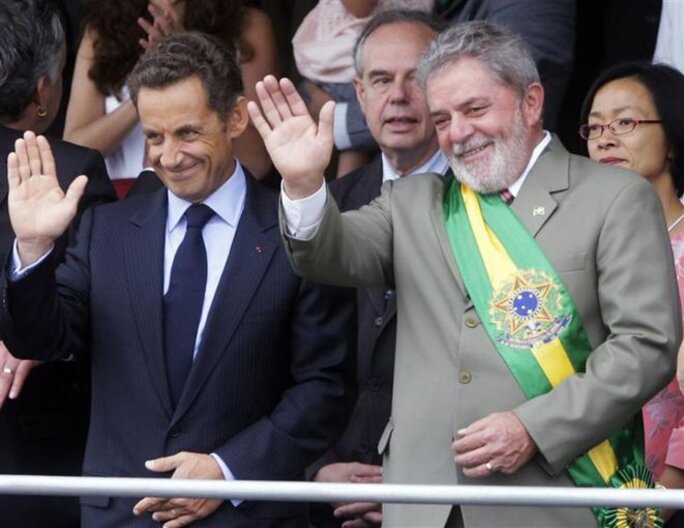
Enlargement : Illustration 3

“It's true that President Sarkozy was trying to have his own way,” Admiral Edmond Guillaud told Mediapart. “You can say he was trying to get his foot in the door.” The former military chief of staff to the president recalls having worked during a part of that night with teams from the Brazilian defence minister, Nelson Jobim, writing an 11-page declaration that the two heads of state had to approve.
This document was made public the following morning and talked of “the finalisation of the relative commercial contracts, on the one hand the development and production of EC-725 transport helicopters and on the other the cooperation in regard to submarines”, which were the object of bilateral agreements signed in Rio de Janeiro. “Taking into account the extent of the transfer of technology proposed and the guarantees provided by the French side, President Lula has announced the decision on the Brazilian side to take part in negotiation with GIE Rafale [editor's note, the defence group] for the acquisition of 36 Rafale fighter planes,” said the official communiqué. In reality the tender process meandered on for several years before Lula's successor President Dilma Rousseff finally announced in 2013 that Brazil was going to buy the Saab-made Gripen fighters from Sweden.
In reality the most sensitive section of the Sarkozy-Lula agreement concerned the submarines because the French were not just selling four Scorpène submarines but also the hull of a fifth one, a nuclear-powered vessel. Hervé Morin remembers that the issue of nuclear “proliferation” was raised. “This discussion was broached at the [French government's] Defence Council but I cannot go into the detail of those conversations which remain secret,” says the former defence minister. The French inter-departmental body on external nuclear policy, presided over by the president himself, the Conseil de la Politique Nucléaire Extérieure, also considered this delicate issue of the transfer of certain technologies to Brazil. In particular there was the question of the fabrication of the specific steel used to make France's SNLE nuclear submarines.
Admiral Edmond Guillaud says, however, that there was “never any question of helping the Brazilians on nuclear propulsion”. France made a commitment solely on the hull, equipment and the naval base. The Franco-Brazilian joint venture envisaged the setting up of a factory next to the assembly site and had to take into account the size of the fifth submarine, which is a larger and much heavier vessel than the Scorpène.
At this point the Brazilian company Odebrecht was already in line to win this huge deal. “Once the contract was signed I discovered that the Brazilians had chosen Odebrecht,” says Admiral Guillaud.
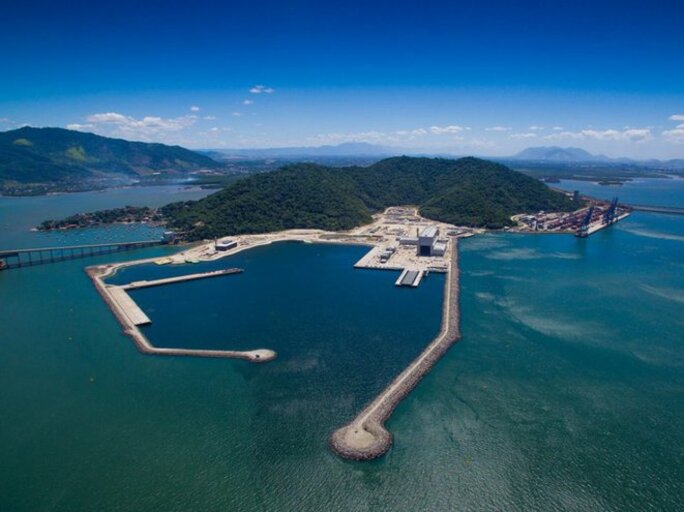
Enlargement : Illustration 4

Lula's PT party got 12m euro 'loan' on the submarine deal says Odebrecht
However, according to the former director of infrastructure at Odebrecht, Benedicto Barbosa da Silva, the talks between the French and Brazilian sides about the construction site long preceded the signing of the deal. A middleman known to the French group Alstom, Jose Amaro Pinto Ramos, is said to have suggested to Odebrecht that it team up with DCNS – the forerunner of Naval Group – for the establishment of the naval yard and the building of the submarine base as early as the end of 2006 and the beginning of 2007. Barbosa da Silva says he had “approved payments of up to 40 million euros” from a foreign account to the middleman. According to the judicial investigation in Brazil, however, the total sum sent to Ramos was 70 million euros, paid via an Odebrecht system that circumvented the accounts.
This system or circuit known as “Fund 2” operated under the cover of Meinl Bank, a small bank on the Caribbean island of Antigua that had been bought by the Brazilian group. According to the firm's lawyers Odebrecht paid close to a thousand people via Meinl Bank, five hundred of them in Brazil, and it withdrew 130 million euros a year.
“At the time the deal was signed with DCNS in Paris, and as a condition for its signature, it was decided that payments would be made to Jose Amaro Ramos according to the progress of the work,” said Barbosa da Silva.

Enlargement : Illustration 5
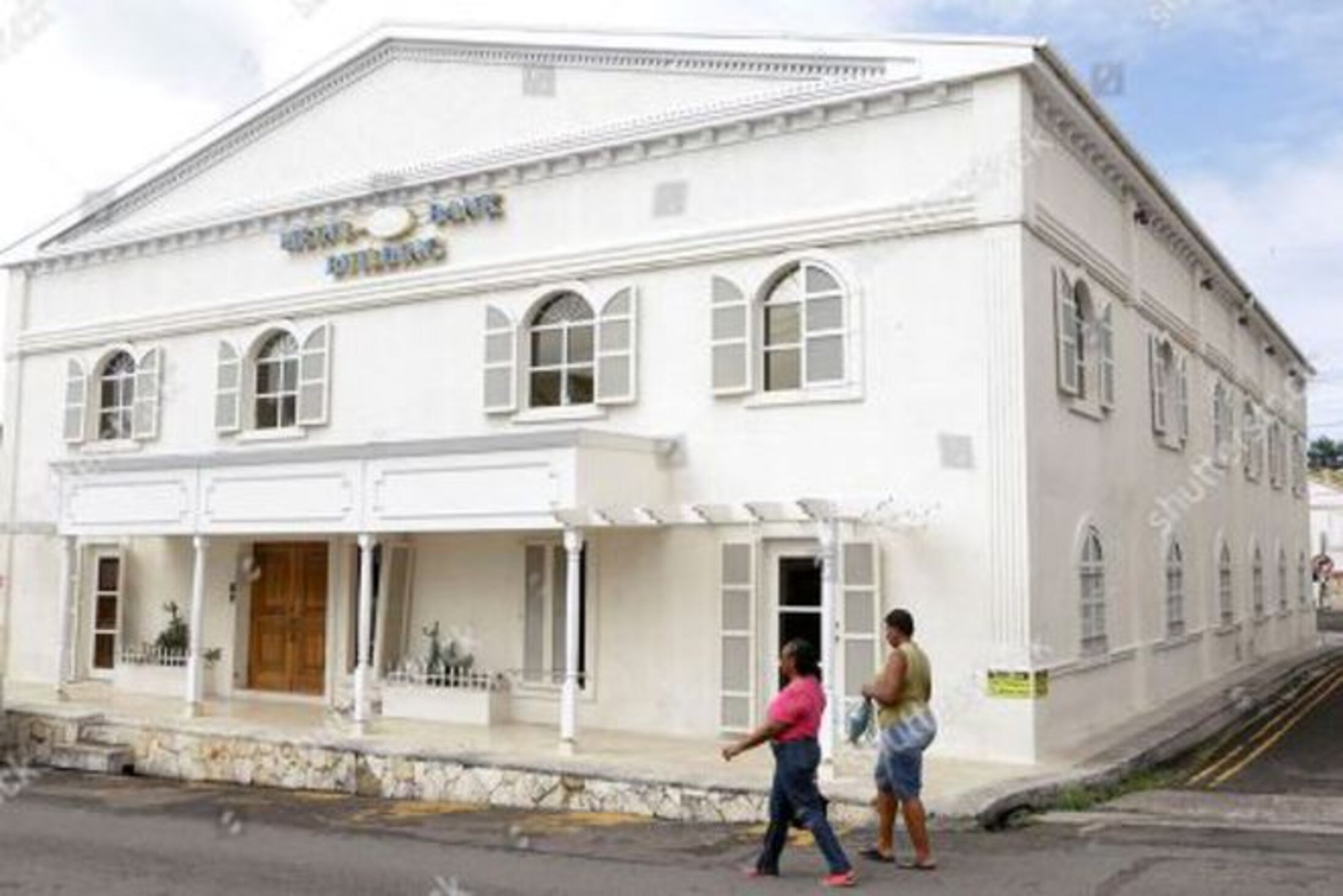
The “Car Wash” investigation has also unearthed the documents that prove that Odebrecht's executives acted in concert secretly, and from an early stage, with the leaders of Lula's PT party. On June 27th, 2009, internal email communications talk about documents to be sent to the “Italian”, Antonio Palocci, who was then an MP but who was in charge of the party's hidden funding. They spoke of a “need for PROSUB funding” and of a “timetable for withdrawals from the PROSUB programme” showing “the withdrawals by the Brazilian government” and the “French funding”. On July 1st, 2009, the group boss Marcelo Odebrecht mentioned “doubts” about an executive: should he “enter into the circuit” with “the Italian” and with Paulo – a figure who has not been identified. According to these emails, the group boss met Palocci on July 10th that year.
Once the PROSUB deal was signed, the Meinl Bank in Antigua transferred one to two million euros a month into the account of an offshore company belonging to Ramos, Casu Trust Management Services. The code name for the payments was 'Champagne'. When Admiral Guillaud was questioned about the payment of agents over the PROSUB contract he said: “I didn't see any agents, I'm not saying there weren't any ... I don't think there were any.”
The lawyer representing Jose Amaro Pinto Ramo, Álvaro Fleury Malheiros, said his client had received “around 17.5 million euros” and not 40 million. He said that Ramos “advised DCNS's main shareholder” - in all likelihood the defence group Thales – but that his payment was justified for “having brought major business to Odebrecht” and for the “intense work carried out” on behalf of the partnership between the two companies. The lawyer said that the role of Ramos was “essential” to the “success” of the project.
Meanwhile a spokesperson for Naval Group told Mediapart: “DCNS has never directly or indirectly asked a Brazilian company or a Brazilian citizen to carry out an unlawful payment to anyone.” The group said that it “respects Brazilian and international law, in the same way that it applies the strictest compliance standards”.
Odebrecht also secretly paid an admiral and president of the Brazilian nuclear subsidiary Electronuclear, Othon Luiz Pinheiro, for his “advice” in relation to the naval base. Some 1.7 million euros were paid into foreign accounts between 2012 and 2014. Pinheiro signed the “protocol of understanding” between Electronuclear and the French nuclear company Areva, then represented by its CEO Anne Lauvergeon, during Sarkozy's first visit to Brazil in 2008. In August 2016 Othon Luiz Pinheiro, by then the target of several investigations, was given a 43-year jail term at a trial for corruption and money laundering in the affair involving the construction of the Angra 3 nuclear reactor in Brazil.
But in the submarine affair one of the largest hidden payments went to the PT workers' party. According to Marcelo Odebrecht, the ruling party had obtained a “loan” for 50 million Brazilian reais – about 12 million euros – in relation to the PROSUB deal. Some notes on his mobile phone link PROSUB and Antonio Palocci's 'Italian account'. They also link PROSUB to'Vaca', the nickname given to the PT's treasurer Joao Vaccari Neto, the former boss of the cooperative bank Bancoop in São Paulo, and who is today in jail.
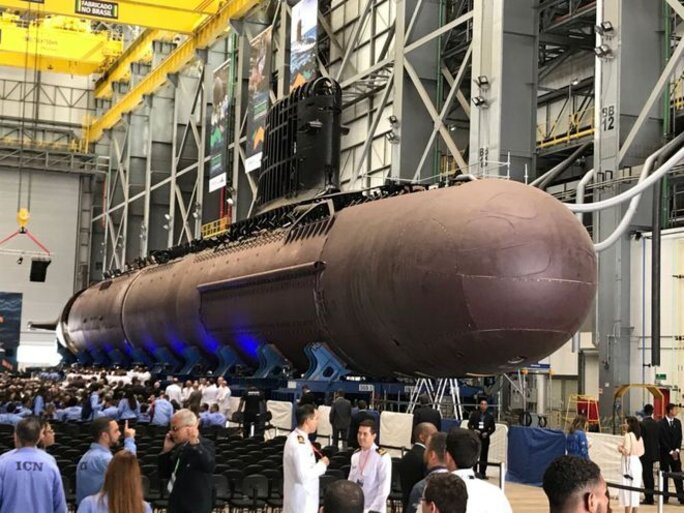
Enlargement : Illustration 6

Federal prosecutors who have looked at the financial record of PROSUB have highlighted that the cost of the Odebrecht and naval group naval base went from 1.2 billion euros to 1.8 billion euros because of “over-billing”. The Scorpène submarine, the Riachuelo, was built in February and should be put in the water this December, before being finished and delivered in 2020. The three others were then due to follow. But a two-year delay has now been announced. As for the nuclear-powered submarine, that remains dependent on work being carried out on the reactor. At the moment the Brazilians are still working on a prototype.
The other deal sealed by Nicolas Sarkozy and Lula da Silva, for the EC725 helicopters, has gone ahead. In 2012 the Brazilian subsidiary of European firm Eurocopter, Helibras, opened a production line at Itajuba. The first helicopter was produced by this factory in 2014 while the first eleven EC725 helicopters have been delivered by Airbus ready for use.
Brazilian judges have meanwhile sifted through the accounts of a small events company created by Lula in 2011, LILS Palestras Eventos e Publicacoes Ldta. They discovered the astonishing list of Lula's clients: all the members of the cartel of businesses clustered around Odebrecht plus Helibras. This subsidiary of Eurocopter paid 464,498 reais or 108,000 euros to Lula's company, officially for him to stage its conferences.
---------------------------------------------------------------------------
- The French version of this article can be found here.
English version by Michael Streeter


